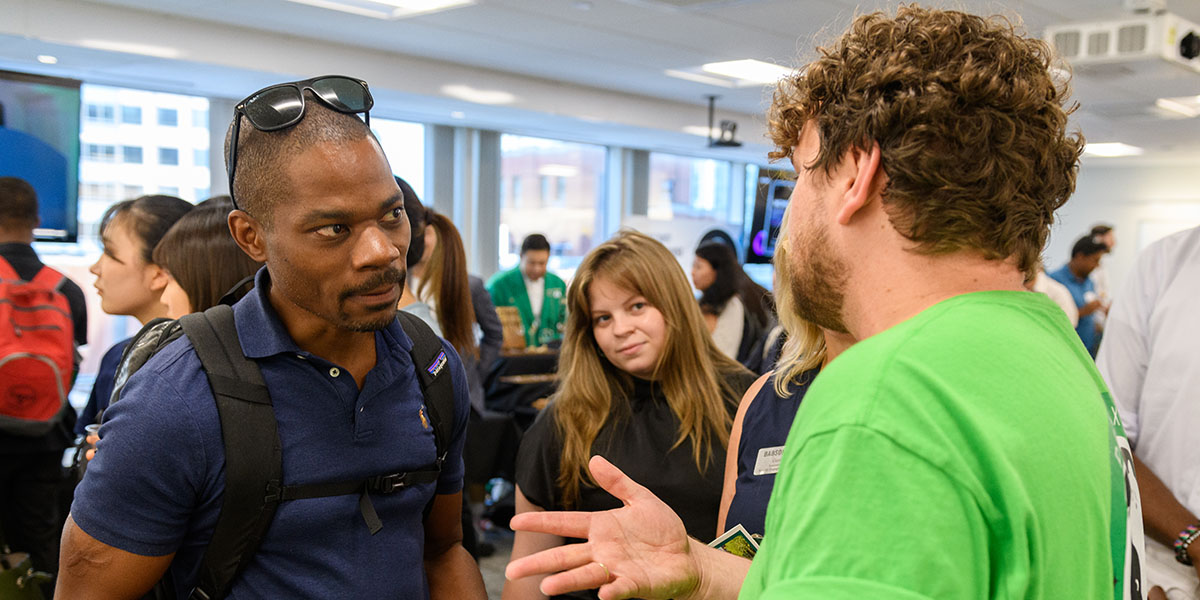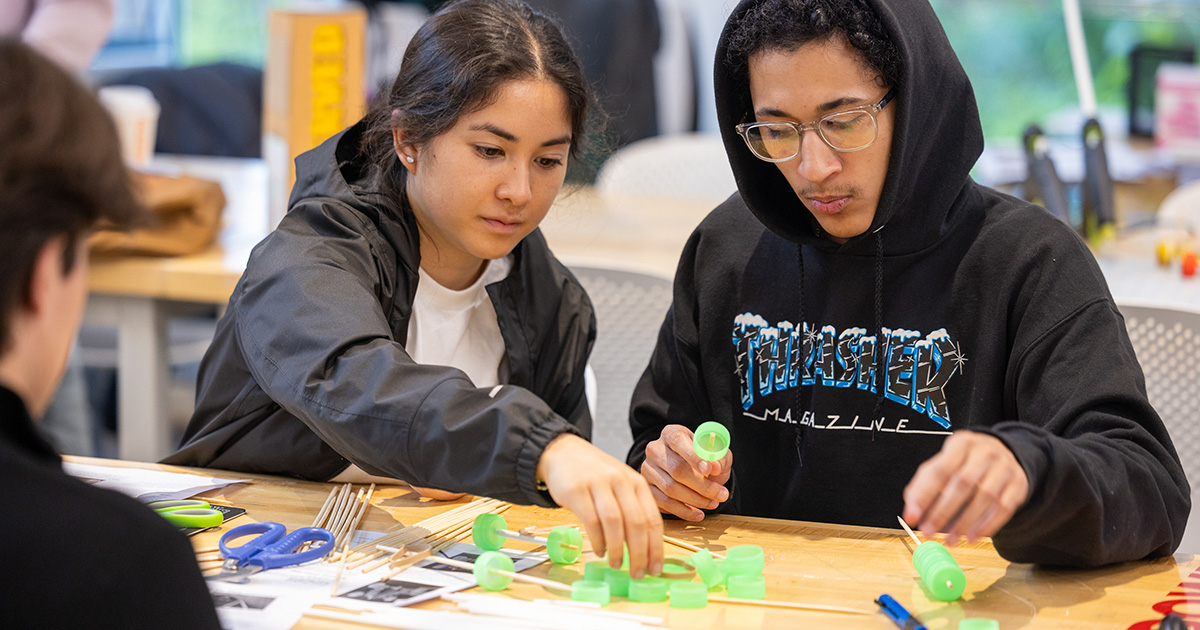Lessons from the Heart of Babson’s Summer Venture Program

Now in its 17th year, Babson College’s Summer Venture Program (SVP) continues to serve as a cornerstone of the student entrepreneurship experience. A signature program of the Arthur M. Blank Center for Entrepreneurship, SVP provides Babson entrepreneurs with the tools, network, and coaching they need to accelerate their ventures. Over 10 intensive weeks, selected teams receive housing, workspace at Babson Boston, advisor support, and access to a powerful entrepreneurial ecosystem—all culminating in a public Summer Venture Showcase.
SUMMER SHOWCASE: Register now to attend the Summer Venture Showcase on July 31.
But, beyond the pitch decks and product launches, what makes SVP truly transformative is the coaching: seasoned advisors who help student founders sharpen ideas, validate markets, and grow as leaders.
Here, four advisors share their unique insights and what keeps them coming back to help build the next generation of entrepreneurial leaders.
About the Advisors
Chris Carr is a seasoned startup advisor, small business owner, and co-founder of the award-winning CTA@Boston accelerator, with more than 25 years of experience and four years of advising ventures through Babson’s Summer Venture Program.
Deb Thompson P’21 is a strategic business coach and advisor who helps leadership teams grow and scale using proven tools from Scaling Up and Exit Planning, and has been actively involved with Babson’s Blank Center programs since 2018—including two years advising ventures in the Summer Venture Program.
Ryan Laverty ’20 is a Summer Venture Program alumnus, entrepreneur, and co-founder of Arist, and is serving as an SVP advisor for the first time this year.
Shawn Harris MBA’03 is a lifelong entrepreneur, and co-founder and CEO of Coworked—creator of Harmony, an agentic AI project manager used by Fortune 500 teams—and has served as an advisor to Babson’s Summer Venture Program for the past four years.
What key lessons do you emphasize to early-stage startups in the Summer Venture Program?
Carr: “Three things. First, define your product or service and validate it. The way a product or service gets validated is by putting it in front of a customer. Second, you can’t do it by yourself. Know your strengths and hire for the gaps in your own skill set. And third, find the right ‘market moment.’ Ensure you have a big enough market to sell to and that this market is ready to buy now.”
Laverty: “Focus on doing the one thing that will take you to the next level. A lot of my time with founders is spent helping guide them on what to focus on and spend less time on the things that yield little results. Doing two (or) three things well equals 95% of results.”
Harris: “First, invest heavily in customer discovery so you develop crystal-clear insight into the real problem worth solving, then start selling as soon as you hear a repeatable pain point. Second, ship a focused MVP (minimal viable product) that tests your core assumption while you keep talking to prospects. Finally, remember that nothing replaces revenue, so embed a culture of continual selling and learning from day one.”
Thompson: “The earlier founders build strong planning habits, team accountability, and customer feedback loops, the better positioned they are to grow.”
What common pitfalls have you seen startups fall into, and how do you guide them to avoid or overcome them?
Thompson: “Startups often neglect foundational business disciplines—clear communication, focused planning, choosing the right people, and talking to customers early and often. Understanding their competitive landscape and building with intention from the start makes all the difference.”
Carr: “There are many resources to draw on and many tasks to complete. In the end, I emphasize that focus will be the key to getting to where you are going. My advice is to get across the finish line by validating your value proposition, demonstrating how it is different, and being clear on how you will get to market with volume and speed.”
Harris: “Many early teams fail to ‘leave the building,’ so I push them to schedule customer conversations each week and share lessons learned with their teams. Others try to build operations for scale too soon; I coach them to focus on the two or three ‘big rocks’ that unlock traction right now. Finally, misaligned teams can burn priceless time, so I encourage candid discussions about vision, mission, roles, decision making, and individual expectations.”
Why did you choose to get involved as an advisor for the Summer Venture Program?
Carr: “Who doesn’t want to be surrounded by bright, educated young people who have the drive and passion to make a difference in our world? Being an advisor allows me to learn and help, while watching them grow.”
Thompson: “I’ve always loved working with startups—it keeps my thinking sharp and allows me to give back in a meaningful way. Advising through the Blank Center combines two passions: business growth and entrepreneurial education.”
Laverty: “SVP was invaluable to us when starting Arist—the ability and support allowed us to work on the business full time while having very little funding. During that period, we got our first $30k through pitch competitions, and then it was off to the races. Now that I’ve gotten to a certain point, I feel a responsibility to help others up the ladder and pay it forward like they did for me. Plus, it’s a lot of fun. Time spent solving hard problems with smart people is what makes life fun.”
Harris: “The concentrated environment, combined with Babson’s global network and deep startup resources, lets teams achieve six months of progress in a single summer. I return each year not only as a proud alum who wants to give back, but also because the founders’ energy keeps me sharp and tuned in.”



